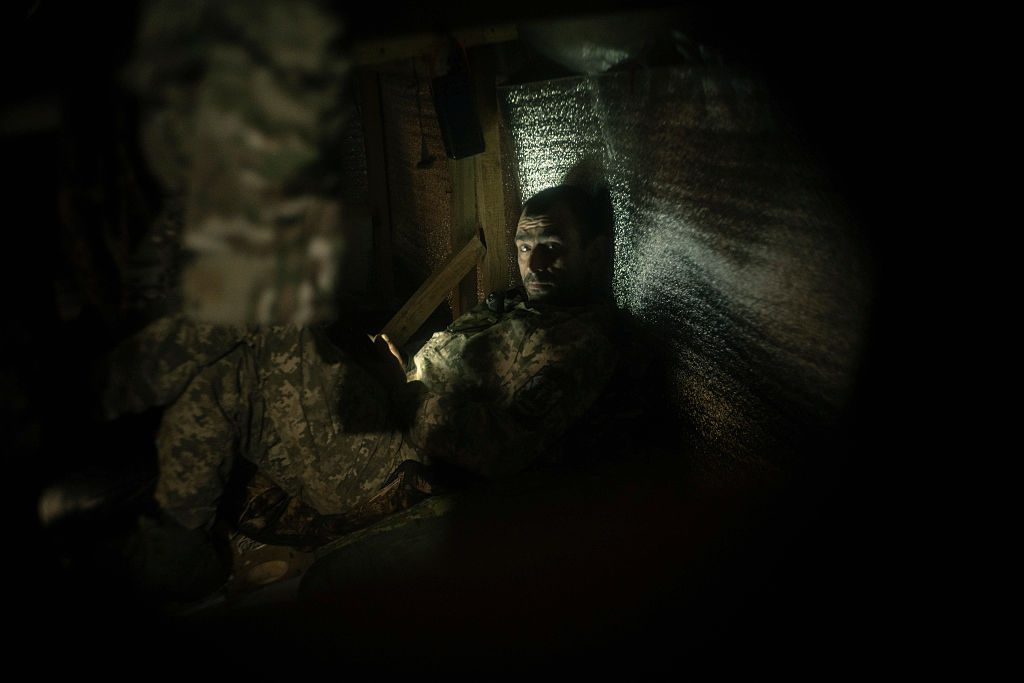The situation in Pokrovsk is looking “difficult”, Ukrainian President Volodymyr Zelensky has said. The head of the Ukrainian army, Oleksandr Syrskyi, has described it as “complicated”. Try “desperate”.
Kyiv has now found it necessary to deploy special forces to the embattled Ukrainian city in a bid to hold back 170,000 advancing Russian troops. Reports have emerged of soldiers surrendering, and Ukrainian military analyst Denys Popovych predicts it will be lost this month. Meanwhile, Ukraine admitted last week that Russian soldiers had penetrated Pokrovsk’s defences, while one of its high-ranking officers estimated on Friday that Moscow controlled approximately 60% of the city. For their part, Ukraine’s forces are still putting up fierce resistance, yet Russian President Vladimir Putin’s confidence is such that he offered to temporarily halt fighting so journalists could come and witness his victory in the making.
If, as looks likely, Moscow claims the city, what does this mean for Ukraine’s war effort? Pokrovsk would follow Bakhmut and Avdiivka as a city which was ruined before it was taken. As such, its status as a logistical hub has diminished due to the fighting, while Ukraine’s only coking coal mine — located six miles west — ended operations back in January. How useful, then, is it for Moscow to capture some ruins?
Very useful, actually. A key road and transport hub, Pokrovsk has not been dubbed “the gateway to Donetsk” for nothing. Seizing the city allows Russia to disrupt Ukrainian supply lines along the eastern front and offers Moscow momentum to head towards Donetsk’s vital fortress cities of Kramatorsk and Sloviansk. Meanwhile, the loss demonstrates how Ukraine’s manpower issues are affecting the war effort, with Zelensky last week assessing that his men are outnumbered eight to one in the area and that Kyiv is simply unable to match Russian numbers.
Pokrovsk may hold strategic value in another battle — specifically, the one in which Ukraine is locked with Donald Trump. While the world seems preoccupied in working out whether the US President favours Moscow or Kyiv at any given moment, it has left largely unquestioned the third option that he could dislike both simultaneously. Of late, Trump has been issuing fresh sanctions against Moscow while members of his administration launch barbs against the Kremlin, and yet he has been privately trying to bully Zelensky into accepting Russia’s maximalist terms for ending the conflict. Should Pokrovsk fall, we can expect more of the same.
Past experience has provided ample demonstration that Trump likes to back a winner. Kyiv’s withdrawal from an important stronghold will not encourage him to double down on supporting Ukraine to prevent similar occurrences in future, but will instead make him further question whether it is worth pouring money into a “dubious investment”. With the Pentagon having cleared supplies of Tomahawk missiles and leaving the final decision to the Commander-in-Chief, Trump will likely refuse, griping about Kyiv’s manpower issues and reassured in his earlier belief that Ukraine does not “hold the cards”. The US President will also commit to his opinion that Zelensky should surrender the entire Donbas region to Putin on the grounds that he is losing it piece by piece anyway.
Ukraine’s ability to hold on to Pokrovsk thus far is commendable. Yet its imminent loss could not have come at a worse time. It may go down in history not so much for its battlefield value but for having truly convinced the US President that Russia was winning the war anyway.
